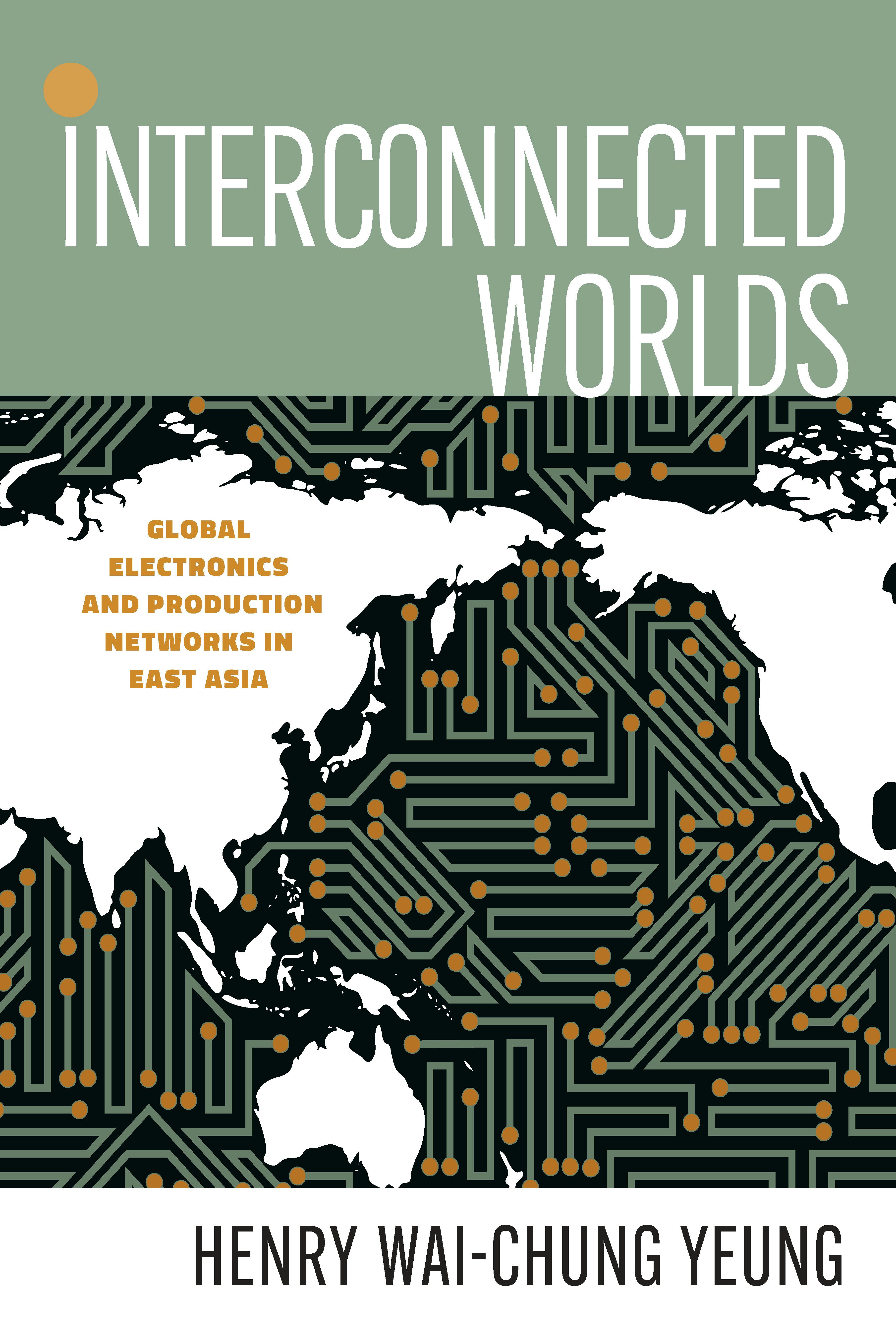Stanford University Press is committed to the dissemination of new knowledge that will benefit, challenge and illuminate our society. The Press publishes around 130 books per year in the Humanities and Social Sciences, with a strong concentration in History, Literature, Philosophy, and Asian Studies, and growing lists in Politics, Sociology, Anthropology, and Religion.
Key subject areas
Stanford Catalogues
Stanford Featured Titles
Digital Relationships
Network Agency Theory and Big Tech
Jason Davis
14 February 2023
Perpetrators
Encountering Humanity's Dark Side
Antonius C.G.M. Robben, Alexander Laban Hinton
17 January 2023
Unruly Speech
Displacement and the Politics of Transgression
Saskia Witteborn
17 January 2023
Practicing Sectarianism
Archival and Ethnographic Interventions on Lebanon
Lara Deeb, Tsolin Nalbantian, Nadya Sbaiti
22 November 2022
Data Cartels
The Companies That Control and Monopolize Our Information
Sarah Lamdan
8 November 2022
Moral Economies of Money
Politics and the Monetary Constitution of Society
Jakob Feinig
4 October 2022
Reader's Block
A History of Reading Differences
Matthew Rubery
4 October 2022
Controlling Immigration
A Comparative Perspective, Fourth Edition
James F. Hollifield, Philip L. Martin, Pia M. Orrenius, François Héran
27 September 2022
Unholy Catholic Ireland
Religious Hypocrisy, Secular Morality, and Irish Irreligion
Hugh Turpin
13 September 2022
Criticism and Politics
A Polemical Introduction
Bruce Robbins
13 September 2022
Unleash Your Complexity Genius
Growing Your Inner Capacity to Lead
Jennifer Garvey Berger, Carolyn Coughlin
9 August 2022
The Souls of White Jokes
How Racist Humor Fuels White Supremacy
Raúl Pérez
26 July 2022
Administering Affect
Pop-Culture Japan and the Politics of Anxiety
Daniel White
19 July 2022
1368
China and the Making of the Modern World
Ali Humayun Akhtar
12 July 2022
Interconnected Worlds
Global Electronics and Production Networks in East Asia
Henry Wai-chung Yeung
28 June 2022
Supercorporate
Distinction and Participation in Post-Hierarchy South Korea
Michael Prentice
14 June 2022
Sextarianism
Sovereignty, Secularism, and the State in Lebanon
Maya Mikdashi
7 June 2022
Crimesploitation
Crime, Punishment, and Pleasure on Reality Television
Daniel LaChance, Paul Kaplan
31 May 2022
Badiou by Badiou
Alain Badiou, Bruno Bosteels
31 May 2022
My Life as an Artificial Creative Intelligence
A Speculative Fiction
Mark Amerika
10 May 2022
How to Live at the End of the World
Theory, Art, and Politics for the Anthropocene
Travis Holloway
3 May 2022
Love against Substitution
Seventeenth-Century English Literature and the Meaning of Marriage
Eric B. Song
26 April 2022
Media of the Masses
Cassette Culture in Modern Egypt
Andrew Simon
19 April 2022
Translating Food Sovereignty
Cultivating Justice in an Age of Transnational Governance
Matthew C. Canfield
19 April 2022
Automation Is a Myth
Luke Munn
5 April 2022
Understanding Global Migration
James F. Hollifield, Neil Foley
1 March 2022
Can We Unlearn Racism?
What South Africa Teaches Us About Whiteness
Jacob R. Boersema
1 March 2022
The Border Within
Vietnamese Migrants Transforming Ethnic Nationalism in Berlin
Phi Hong Su
15 February 2022
Design Leadership Ignited
Elevating Design at Scale
Eric Quint, Gerda Gemser, Giulia Calabretta
8 February 2022
Dream Super-Express
A Cultural History of the World's First Bullet Train
Jessamyn Abel
11 January 2022
Stanford Featured Series
Stanford Studies in Middle Eastern and Islamic Societies and Cultures
Series editors: Joel Beinin & Laleh Khalili
This series explores the social and political conditions that enable various forms of cultural expression in the Middle East—whether Islamic, nationalist, or secular—and the ways in which these forms legitimate regimes and operate as social movements. Books in this series are particularly concerned with the relationships between the new international economy, local states, national and sub-national communities, and local, regional, and transnational forms of culture. With a chronological focus from World War II to the present, this series produces books of cutting-edge scholarship and broad appeal that address the region spanning from Morocco to Pakistan—the zone that constitutes the historic core of the Muslim-majority world.
Between Dreams and Ghosts
Indian Migration and Middle Eastern Oil
Bread and Freedom
Egypt's Revolutionary Situation
Paradoxes of Care
Children and Global Medical Aid in Egypt
The Politics of Art
Dissent and Cultural Diplomacy in Lebanon, Palestine, and Jordan
The Paranoid Style in American Diplomacy
Oil and Arab Nationalism in Iraq
Screen Shots
State Violence on Camera in Israel and Palestine
Dear Palestine
A Social History of the 1948 War
A Critical Political Economy of the Middle East and North Africa
Showpiece City
How Architecture Made Dubai
Archive Wars
The Politics of History in Saudi Arabia
Between Muslims
Religious Difference in Iraqi Kurdistan
Graveyard of Clerics
Everyday Activism in Saudi Arabia
Cleft Capitalism
The Social Origins of Failed Market Making in Egypt
The Universal Enemy
Jihad, Empire, and the Challenge of Solidarity
Iran Reframed
Anxieties of Power in the Islamic Republic
Heritage and the Cultural Struggle for Palestine
Stanford Briefs
The Stanford Briefs imprint presents an innovative collection of new books. Published across our various disciplines, these books address the essence of a topic. Briefs are essay-length works freed from the technical requirements of the scholarly journal article and the elaborate documentation of the full-length research monograph. All Briefs are peer-reviewed, and the criteria we use to select and approve each manuscript match the rigor and high standards of our traditional monographs. Without sacrificing the quality of carefully edited and produced content, these books are published on faster schedules to allow for time-sensitive dialogue. Short and incisive, Stanford Briefs promote intelligent debate, bringing novel perspectives to a wide range of readers.
The Origins of COVID-19
China and Global Capitalism
The Biomedical Empire
Lessons Learned from the COVID-19 Pandemic
Crowds
The Stadium as a Ritual of Intensity
Women as War Criminals
Gender, Agency, and Justice
The Power of Deserts
Climate Change, the Middle East, and the Promise of a Post-Oil Era
Tyranny of Greed
Trump, Corruption, and the Revolution to Come
A Unified Theory of Cats on the Internet
Permanent Revolution
Reflections on Capitalism
The Arc of Protection
Reforming the International Refugee Regime
When Words Trump Politics
Resisting a Hostile Regime of Language
Limits
Why Malthus Was Wrong and Why Environmentalists Should Care
Unlocking Leadership Mindtraps
How to Thrive in Complexity
South Asia in Motion
Series editor: Thomas Blom Hansen
South Asia is on the move. People, goods, ideas, aesthetic forms, institutional designs, and political dynamics originating in South Asia have been increasingly important across the globe throughout the 20th century. Today, seismic social, economic, and cultural shifts across the region undermine old certainties, unsettle long established social hierarchies and patterns of life, transforming the lives of hundreds of millions of people. This series foregrounds scholarly work that critically and imaginatively explores these vast and deep transformations and the complex historical conditions that made them possible. The series is focused on contemporary issues and distinctly modern and colonial investigations grounded in strong empirical, ethnographic, and archival work.
Protestant Textuality and the Tamil Modern
Political Oratory and the Social Imaginary in South Asia
Special Treatment
Student Doctors at the All India Institute of Medical Sciences
From Raj to Republic
Sovereignty, Violence, and Democracy in India
The Greater India Experiment
Hindutva and the Northeast
Nobody's People
Hierarchy as Hope in a Society of Thieves
Brand New Nation
Capitalist Dreams and Nationalist Designs in Twenty-First-Century India
Partisan Aesthetics
Modern Art and India’s Long Decolonization
Dying to Serve
Militarism, Affect, and the Politics of Sacrifice in the Pakistan Army
In the Name of the Nation
India and Its Northeast
Faithful Fighters
Identity and Power in the British Indian Army
Paradoxes of the Popular
Crowd Politics in Bangladesh
The Ethics of Staying
Social Movements and Land Rights Politics in Pakistan
Mafia Raj
The Rule of Bosses in South Asia
U.S. & Canada orders
If you are ordering from the U.S. or Canada, please visit www.sup.org








































































